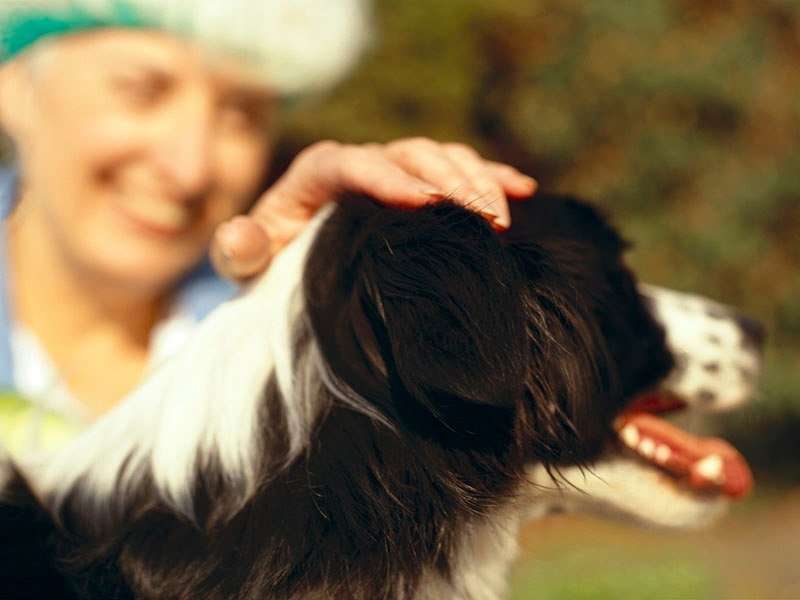Keep pets safe from July 4th's fireworks, summer's sizzle

(HealthDay)—Is your dog the type to dive under a bed at the first pop of a firecracker? Is your cat suddenly avoiding stretching out for a snooze in her favorite sunny spot? Although many humans adore the warmer weather, holidays and outside activities of summer, they can be a challenge for your furry friends.
Here's some advice on getting your pet through summer safely.
Fireworks and Thunderstorms Can Frighten
Whether you live near a big fireworks display or neighbors are lighting off smaller—though still noisy—fireworks, there's a good chance the sounds will frighten your pet. The same goes for thunderstorms.
Victoria Cussen is director of anti-cruelty behavior research for the American Society for the Prevention of Cruelty to Animals (ASPCA). She suggested moving your pooch to an interior room, ideally one without windows, and turning on soft, soothing music. This will help calm your pet and lessen the chance that it will escape and potentially get lost.
While anxiety vests may make some dogs feel more secure, Cussen said they should never be left unattended when wearing these garments.
But dogs aren't the only pets who might have an issue with loud noises, she pointed out.
"While noise phobias are not as common in cats, they can and do happen. Cats tend to hide when frightened. Checking in on your cats, having some quiet music on and keeping them indoors during the height of the fireworks is always a good idea," Cussen said.
For animals that just don't calm down, she suggested asking your veterinarian if anti-anxiety medication may be appropriate for especially noisy times. But she cautioned not to share medications between pets, or to give more than the recommended dose.
Finally, Cussen said, never use fireworks around pets. They pose a significant burn risk to pets and can expose them to toxic substances.
Mercury Rising? Keeping Pets Indoors May Be Best
Just like people, pets can get heat exhaustion. Some are more susceptible than others, including:
- Flat-faced pets (Pugs and Persian cats, for example)
- Elderly pets
- Overweight animals
- Pets with heart or lung conditions
To help prevent heat exhaustion, make sure your pet always has access to fresh water and a shady place to hang out when outdoors. And, if your pet is at higher risk of heat problems, keep them in cool spaces as much as possible.
If it's very hot, keep outdoor time to a minimum and limit play sessions. Dogs don't necessarily know when to stop exercising due to heat.
Always check pavement temperature before letting your pet out.
According to Dr. Lori Bierbrier, medical director of the ASPCA community medicine department, "Hot asphalt can burn your dog's sensitive paw pads. If the asphalt is too hot for you to stand on barefoot, then it is too hot for your pet." She suggested that if it's too hot, walk your pet on a grassy area.
Helping Get a Lost Pet Home
Ideally, Cussen said, your pet's collar should have an ID tag with up-to-date information. This is especially important if you're going away. You also might want to ask your vet about getting a microchip with your contact information implanted in your pet.
BBQs Aren't Great Places for Fido
BBQs are a summer-fun staple, but they may not be the best place for your pooch.
"Be aware of potential toxins," Bierbrier said. "A lot of food and drink common at barbecues and picnics can be poisonous to pets, including raisins, grapes, onions, chocolate, the sweetener xylitol and alcoholic beverages."
If you think your pet has ingested something toxic, call your vet or the Animal Poison Control Center at 888-426-4435.
Watch Out Near Water
Maybe you've seen amazing videos of surfing pups, but not all pets belong in the water.
"All pets do not instinctively know how to swim, and not all pets are good swimmers or suited for water," Bierbrier explained.
Never leave your pet unsupervised around a pool, and if you take your pet on a boat, have it wear a properly fitted life vest, she advised.
More information: Learn more about keeping your furry friends healthy during the summer at the ASPCA's website.
Copyright © 2018 HealthDay. All rights reserved.





















